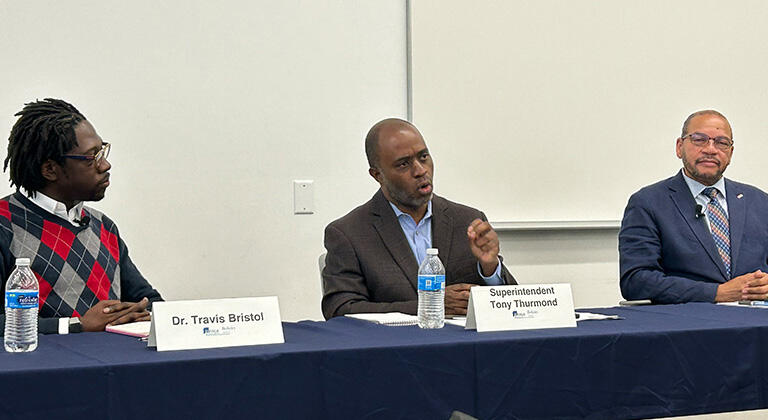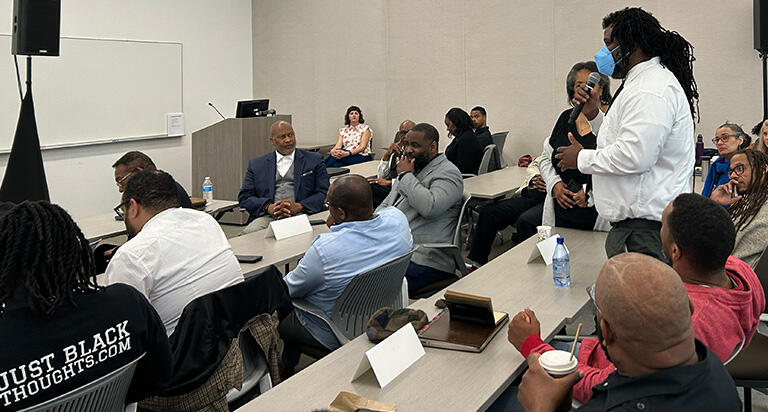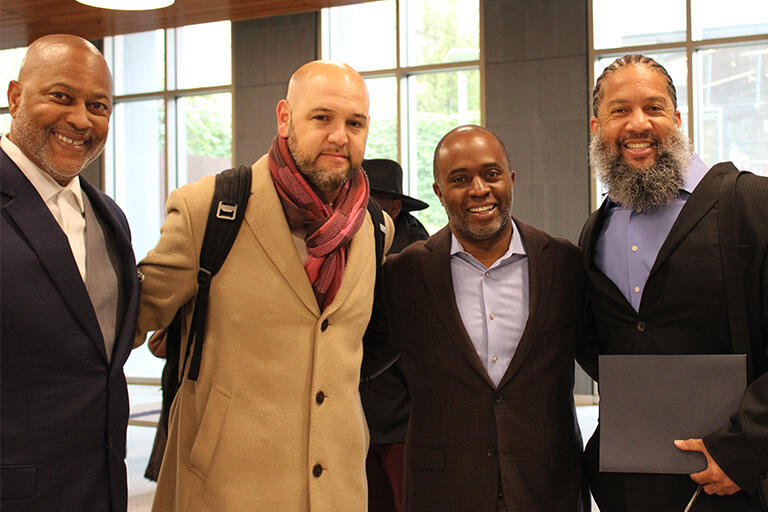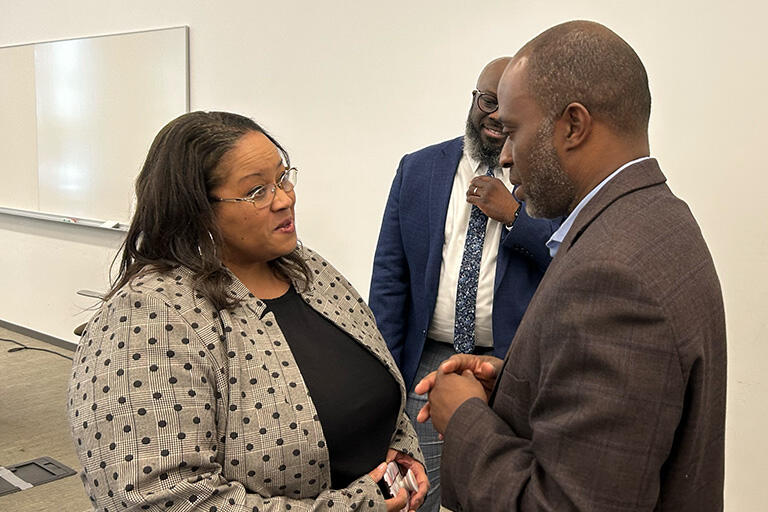


California State Superintendent of Public Instruction Tony Thurmond and California Teachers Association President E. Toby Boyd spoke at UC Berkeley with Berkeley School of Education Associate Professor Travis Bristol on May 6 about equity and access to education. They shared their leadership journey and experiences as Black men.
The state's top educational leaders expressed sobering realities — and offered hope — on what it means to be a Black male leader within a system that has historically marginalized BIPOC students and communities.
"We can do better and we must do better,” said Thurmond, who said it’s unacceptable to give lip service to the concept of equity. "Everybody asks, what’s my definition of equity? I tell them, ‘I'm not going to define the word. I want us to show equity by doing it.’ And that’s because every student deserves a great opportunity and a great life that starts with a great education.”
The event — the first time Thurmond has come to Berkeley School of Education in his current role — was hosted by the African American Male Leaders Network (AAMLN), which is sponsored by the Berkeley-based 21st Century California School Leadership Academy and the Berkeley School of Education Leadership Programs. The AAMLN is an affinity group comprising Black educational leaders from throughout the Bay Area.
Boyd, a former kindergarten teacher and the first Black man to lead the nation’s largest teachers’ union, echoed Thurmond’s sentiments about equity, adding that one place to start is by expanding the community schools model. When parents, teachers, community leaders, and educational leaders work together to support each neighborhood’s needs, each community school may look different, but everyone is invested in the success of the students.
“We have to figure out how we’re going to make sure it’s going to be sustainable and actually beneficial for all of our students,” Boyd said, adding that all children should be given the opportunity to access quality education. "But it can’t just stop with the poor schools. Community schools should be in every single school that we have,” he said.
In terms of academic success, Thurmond noted that his office is putting an emphasis on supporting literacy in the early grades. Research has shown that students who are still struggling to read in the third grade have lower academic achievement for the rest of their schooling.
“Most of my career has been in social work. I’ve seen what happens when you don’t get to reading by third grade. You’re more likely to drop out,” he said. “And if you drop out, you’re more likely to end up in the criminal justice system. We can do something about that.”
Another challenge for California is the ongoing shortage of credentialed teachers, particularly teachers of color. The state recently began offering scholarships for people who become teachers but there have been few applicants. Thurmond and Boyd agreed that there is a duality in being a teacher: Many people can point to a favorite teacher who inspired them, and yet teachers are roundly blamed for poor educational outcomes. Combine that with relatively low pay and scant ongoing support for teachers, and it’s easy to see why there’s a teacher shortage.
“There’s a lot of times where educators are struggling and no one goes in and checks on them to say, ‘Hey, what do you need in order to make sure that you’re successful?’ … We don’t do that enough,” Boyd said.
Both Thurmond and Boyd also shared personal experiences, highlighting life challenges, and explaining why they chose to attend the event held on a rainy Saturday morning.
Boyd pointed to times when he wondered whether requests and expectations of him were also made of his white predecessors, and shared how he has sometimes felt isolated from other Black leaders in part because of his lighter skin tone. “All I know is that we need the support of each other,” he said. “We need to have these affinity groups that I see in front of me, which is very powerful.”
Thurmond recounted his childhood when he was shy and often food insecure. He was raised in Detroit, Mich., by an older cousin who emphasized education.
“She insisted that (we) were going to get a great public education,” he said. “All the teachers in my life sent a message that basically said without saying it: ‘your life will be better than it started.’ … I bought into that promise. I know we have to keep that promise for our kids.”






